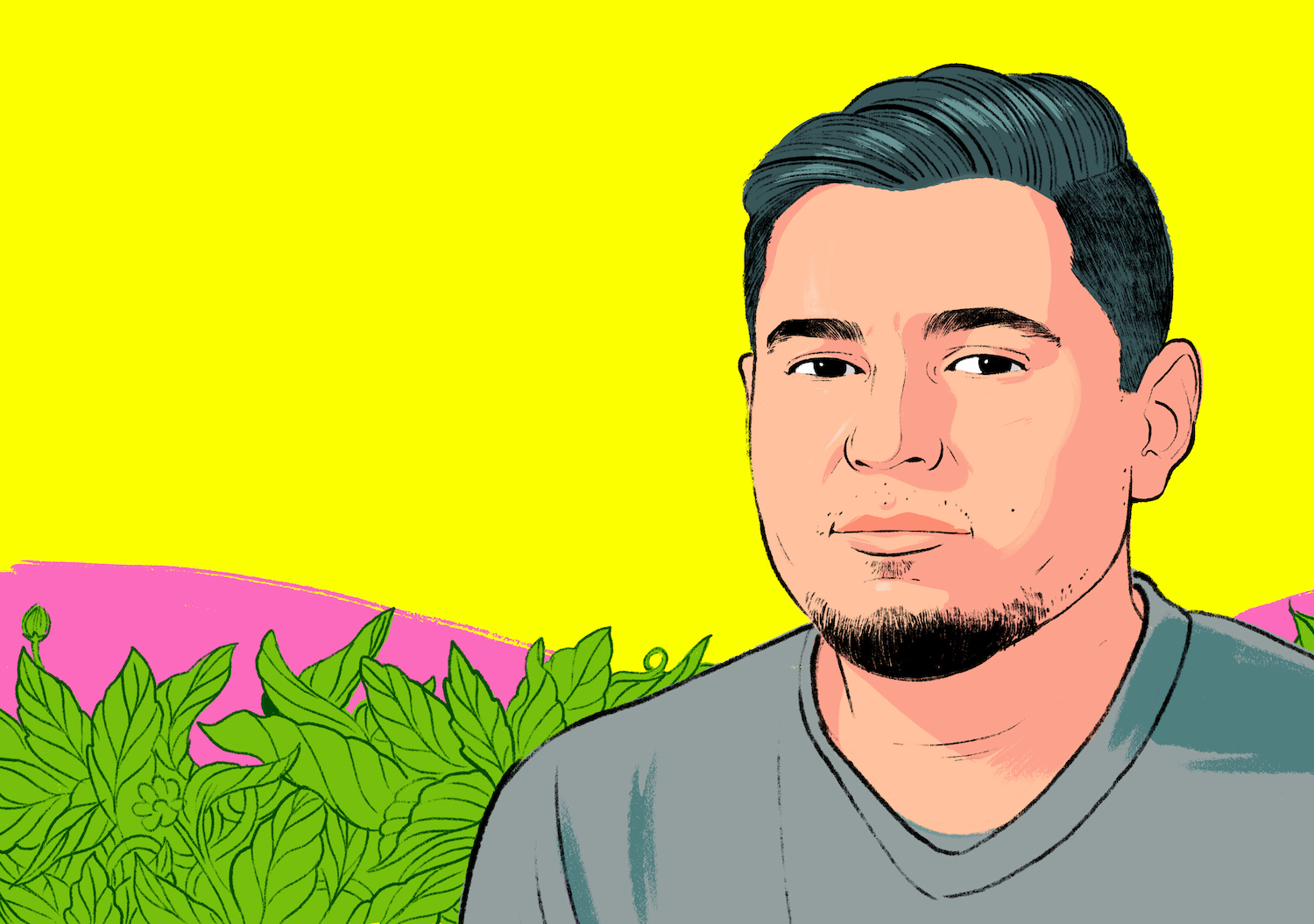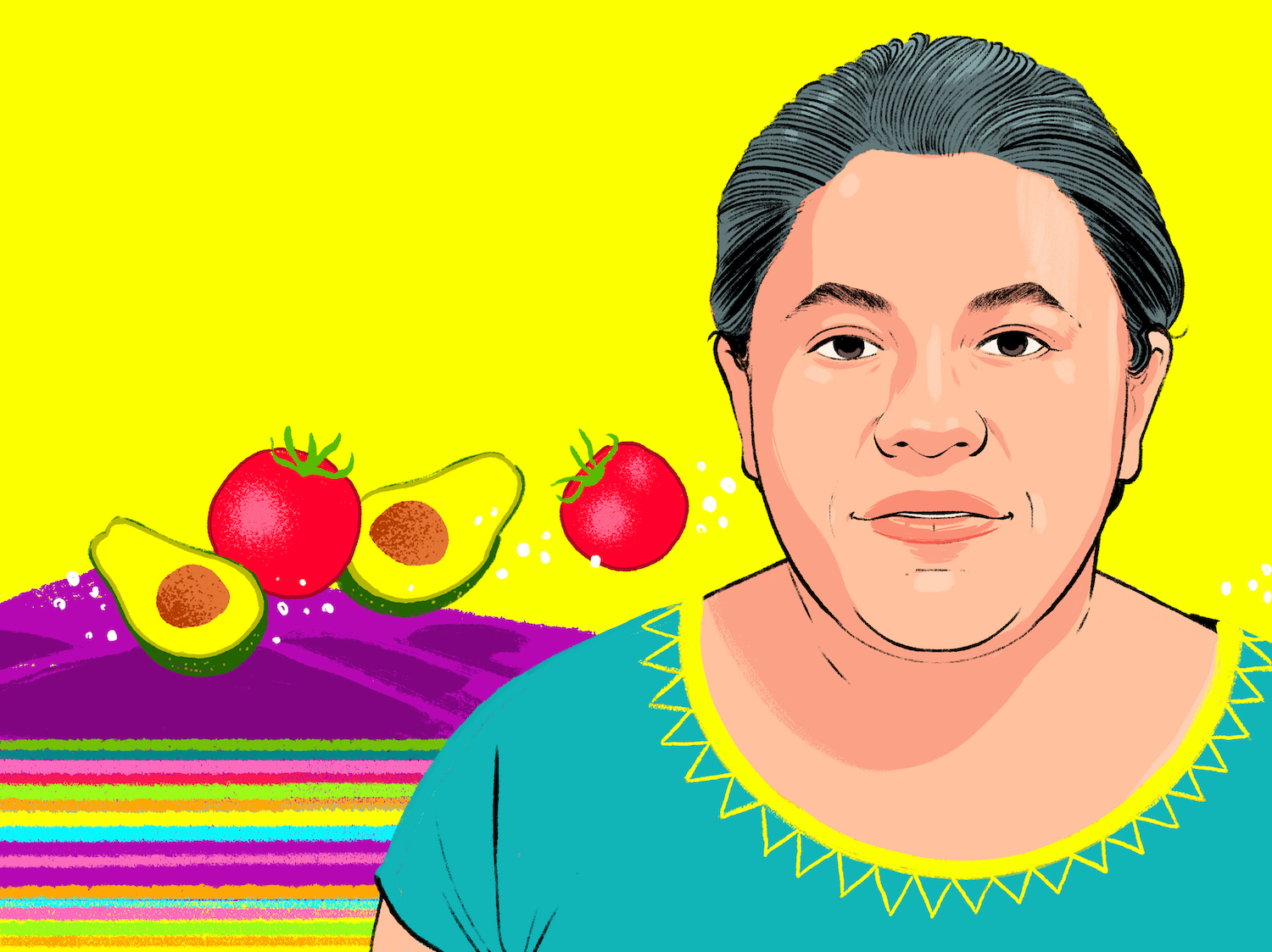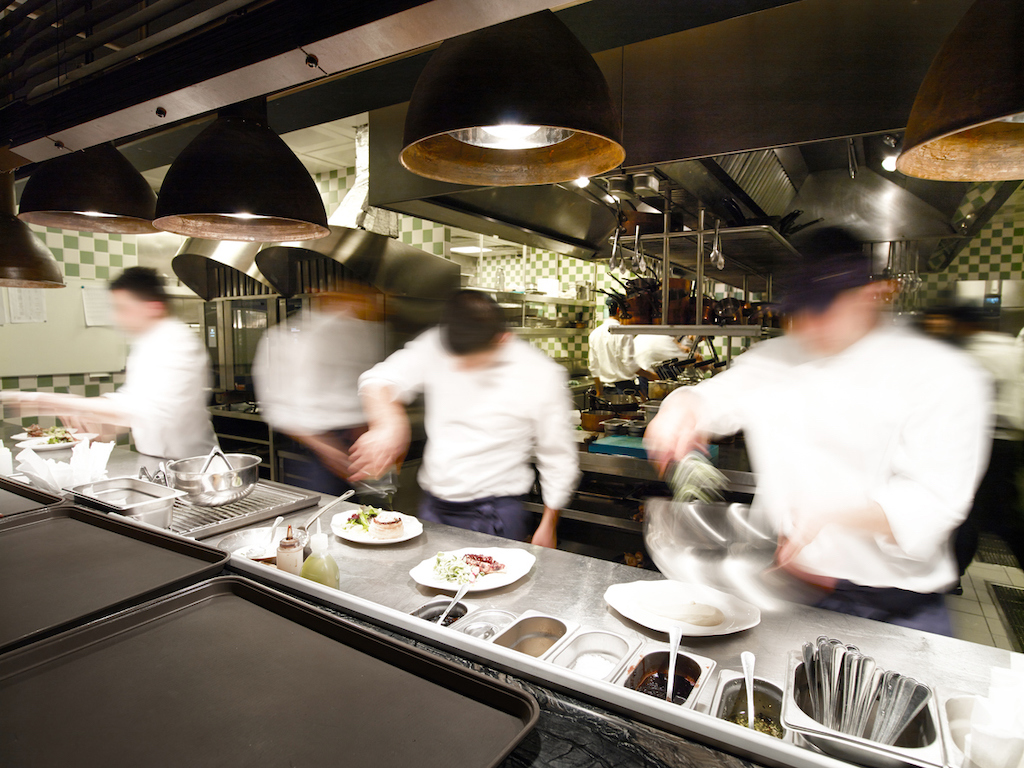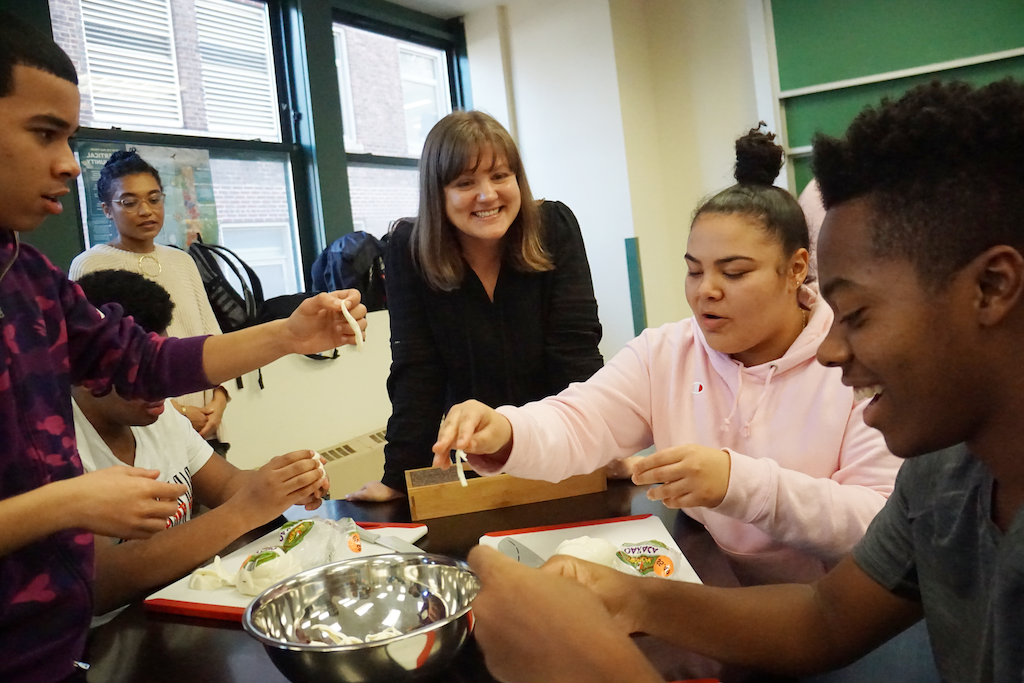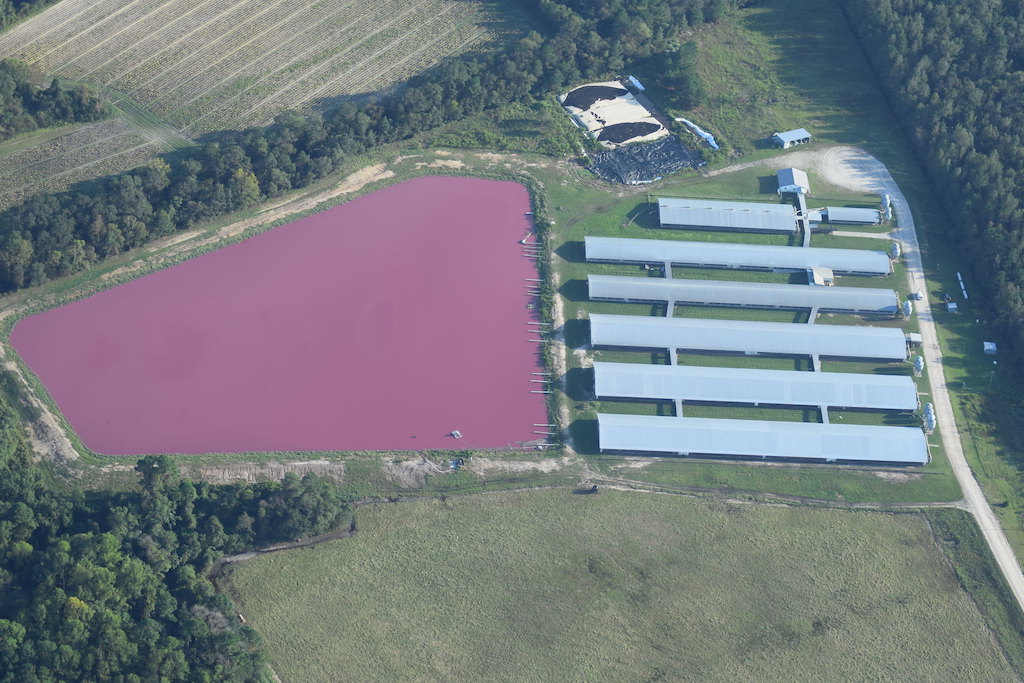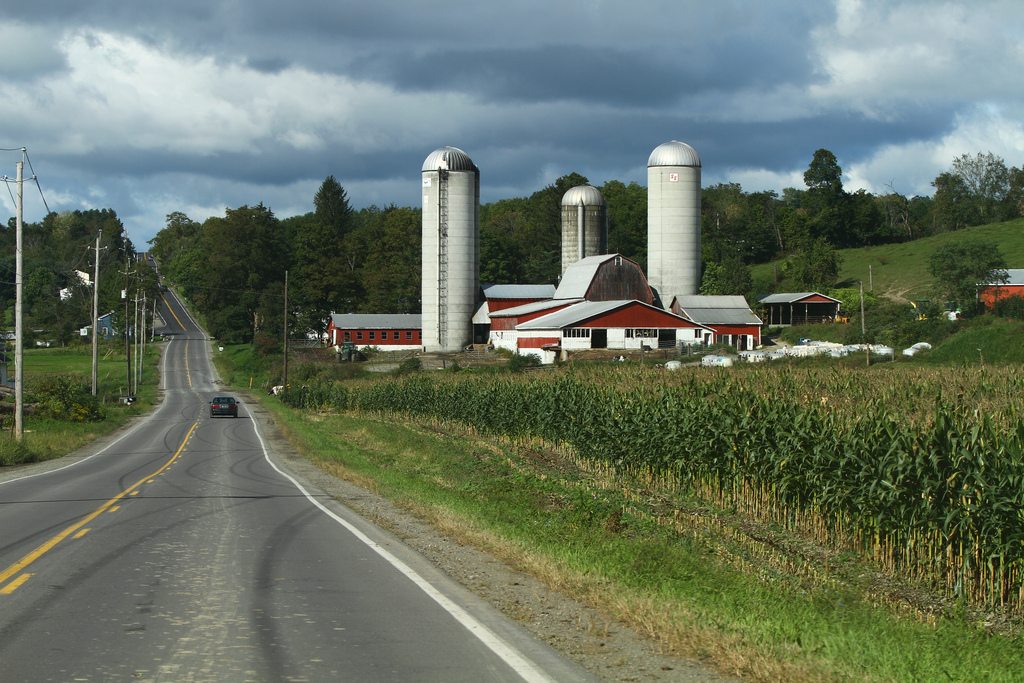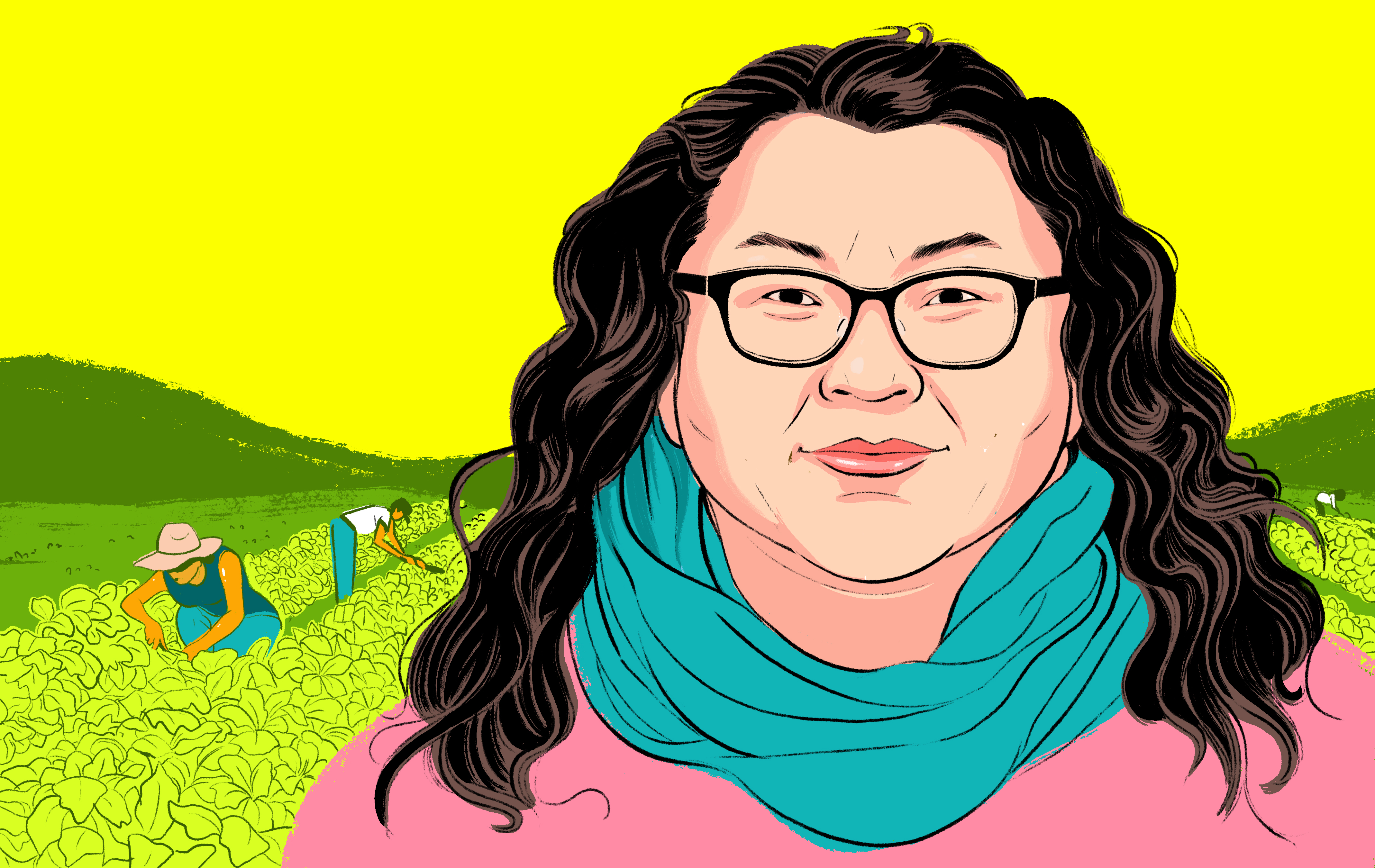
Alex Fine
Pakou Hang, 42, was born in Thailand, but she’s been an American for all but two weeks of her life. Hang, the child of Hmong refugees resettled in the United States and grew up in Wisconsin, where her parents supported the family by farming. Today, that history deeply informs Hang’s own work: She’s co-founder and executive director of the Hmong American Farmers Association (HAFA), headquartered on a 155-acre research and incubator farm 15 miles south of St. Paul, Minnesota.
Facing persecution as U.S. allies in the Laotian Civil War and the Vietnam War, more than 100,000 Hmong refugees have relocated to the United States since the 1970s. They brought their agricultural prowess with them. In past decades, Hmong-American farmers helped to pioneer the contemporary local food movement in California and the Midwest, popularizing ingredients like Thai chili peppers and bok choy; today, Hmong farmers account for more than half of the produce sold in St. Paul’s farmers’ markets. Founded in 2011, HAFA helps to sustain that legacy by providing pilot plots, professional training, and a food hub—the key piece of processing and distribution infrastructure that makes doing business possible.
Hang spoke about her upbringing, her childhood resistance to the farm life, and why she decided to come back home and make agriculture her calling and career.
~
Pakou: I was born in a refugee camp in Northern Thailand. My family were Hmong refugees from Laos. Like many Hmong people, my father and uncles had worked for the Americans in what later became known as Laos’s Secret War and were persecuted following a Communist coup d’état in 1975. We flew to the United States when I was 15 days old and lived in Georgia and Rhode Island before settling in the Midwest.
My earliest memories are in Appleton, Wisconsin.
We were so poor, but I didn’t realize it at the time. I knew I was loved and that I would be taken care of. My parents didn’t speak any English but somehow, they got us into Catholic schools (we follow Hmong traditions, where we practice ancestor worship, but are also Catholic). We went to church, and I had white friends and black friends. That always felt normal. I felt very safe.
When I was in the fifth grade, we moved to St. Paul, Minnesota, where my parents opened a Chinese restaurant. They continued to farm—they never owned land, just rented—in order to pay for our private school. In some Hmong families only the boys are educated, but in our family everyone was. My parents were progressive and they wanted us to get a good education so we would not have to rely on physical labor to make a living like they had.
In Hmong culture, food is both the form around which we build community and it’s the glue that cements the community. That’s the skillset many Hmong refugees, who came from rural Laos, came over with. And it’s not a one-person job. You need a community and you need a family. Which is why, I think in the beginning, it was very attractive for large Hmong families.
There’s a lot of pride in producing food and in having a family business, but it’s physically taxing and the profit margins are low. As a kid, I hated farming. We often fought in the summertime because we were all sleep-deprived and stressed from working two jobs: our day jobs, farming in the evenings, and then selling at farmers markets on weekends. There’s a constant tension between loving your parents and hating farming. I always sought out summer internships and summer-enrichment programs to avoid helping out.
So it’s a bit ironic that I work with farming now.
My parents pushed us all of us (I have six sisters and brothers) to study, and I went to Yale [University], where I studied political science and was the first Hmong student to attend the college. I always thought that once we went to college, we would pay our own way and my parents could stop farming. But they kept farming.
HAFA is a non-profit, membership-based farming organization that focuses on supporting Hmong farmers and building community wealth. We’re located on a 155-acre farm, just south of St. Paul, where we offer long-term leases on five- to 10-acre lots. We study some of the power dynamics inherent in this industry—for instance, why don’t Hmong farmers who have been farming have the same marketing opportunities as young, hip, just-out-college and inexperienced white farmers? We work to help our farmers gain access to markets. We focus on helping our members build wealth, working with them individually, and mapping our community to assess their needs.
My vision is that, years from now, there will be a Hmong family whose company is being traded on the New York Stock Exchange, who can point to [joining] HAFA as the time when farming became a family business with longevity, as opposed to something that the parents had to do and that their children were ashamed of. I want them to see our farmers as the grandparents or great-grandparents who started a family enterprise.

